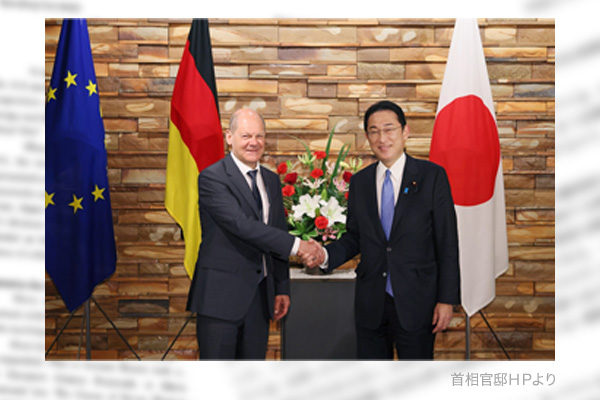The online edition of Foreign Affairs on June 13 carried an article headlined “The Real End of Pax Americana.” Its author is Mark Leonard, director of the European Council on Foreign Relations. In response to Russia’s aggression in Ukraine, Germany has fundamentally reoriented its defense policy and begun to phase out its energy dependence on Russia. In a manner to follow suit, Japan has decided to substantially increase defense spending. The two countries are seeking to become “normal powers,” Leonard says. The United States will continue its inward-looking attitude as indicated by its avoidance of direct intervention in the Ukraine war, while Germany and Japan fill the vacuum created by the U.S. retreat. The transition could cause frictions in the short term but will be healthy for the U.S. and for the global order in the long term, according to Leonard.
Japan and Germany to become “normal powers”
Have Germany and Japan become “normal powers” suddenly? In 1990 when East and West Germanys were unified, then German Chancellor Helmut Kohl said Germany was surrounded by friendly and partner countries. The German perception has turned around, Leonard says. More than 50% of German respondents to a January 2022 poll claimed that Russia’s stance on Ukraine posed a large military threat to their country. Although Japan’s defense spending was almost the same as China’s in 2005, China spends five times more than Japan on defense now. By 2030, China’s defense spending would be nine times as much as Japan’s, according to Leonard. It is evident that Germany has reoriented its policy in the face of Russian threats and Japan has done so in the face of Chinese threats.
Leonard points out that Japan increased its defense spending from $45.1 billion in 2017 to $54.1 billion in 2021 and that its ruling Liberal Democratic Party has recommended Japan should double defense spending to 2% of its gross domestic product. At the same time, it is also argued whether Japan could take part in consultations with the U.S. about the use of nuclear weapons as Germany does. Japan is attempting to enhance security relations with other Indo-Pacific partners, particularly Australia, India, the Philippines, Singapore and Vietnam, Leonard says. The Ukraine war has only triggered ongoing changes in Japan and Germany.
Leonard notes that Japan and Germany may become less dependent on the U.S. for security. Such trend is seen in a recent German poll. 56% of German respondents believe that China will be a stronger power than the U.S. in 10 years, and 60% say that Germany cannot always count on the U.S. to defend it and so must invest in European defense.
Unnatural postwar regime
While the U.S. maintains its foreign and defense policy interests in the Indo-Pacific, its economic and military weight will shrink compared with China’s. As a result, Leonard predicts, Japan will strengthen its traditional ties with the U.S. yet continue to diversify beyond the traditional alliance. The “forced pacification” of Japan and Germany that had predictably become regional hegemons in the prewar period owing to geography, demography and history has been “unnatural,” according to Leonard. The time has come for Japan to acknowledge that Pax Americana is finally over and will give way to “more cooperative regional security orders.”
Tadae Takubo is Vice President, Japan Institute for National Fundamentals, and a professor emeritus at Kyorin University.


